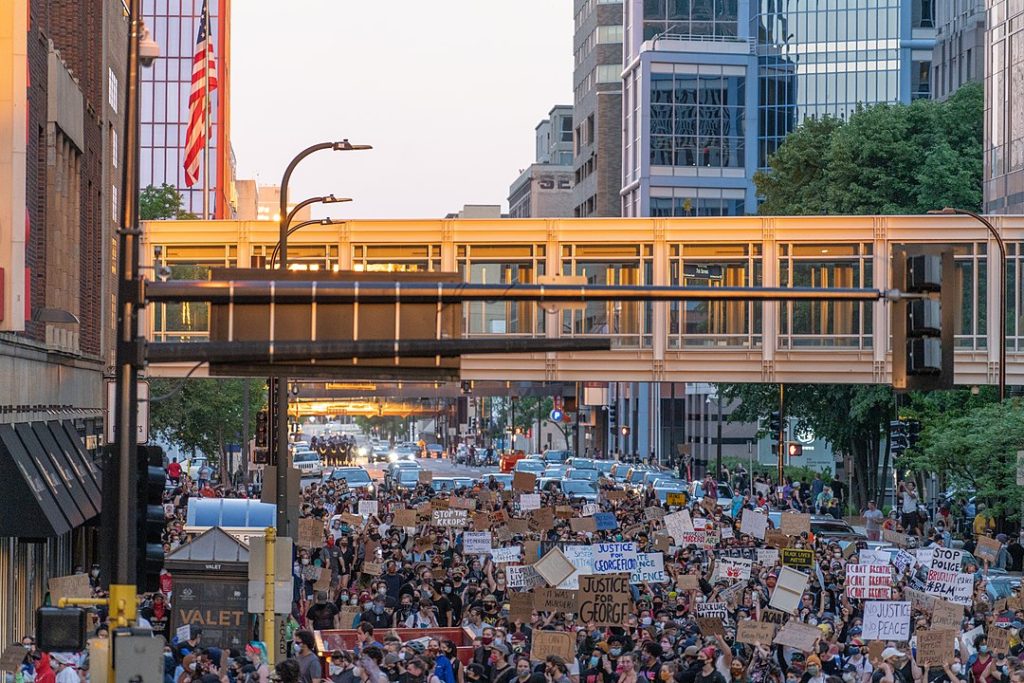I feel like we let a moment of unity slip through our fingers. It seems that when we collectively watched the killing of George Floyd, we were all horrified. I have friends across the political spectrum, and even those I most disagree with – the die hard Trump supporters – were as outraged by that murder as anyone. And then came the first peaceful protest, and it seemed that everyone was absolutely behind it. For a moment.

Protesters gather in downtown Minneapolis. Unrest in Minneapolis over the May 25th death of George Floyd.
Then on the fringes of the peaceful, heartfelt protests came the fringe elements – the violence, vandalism, looting. Even then, for a moment, it seemed that the facts and the narrative were that this was a few bad actors and a few bad cops causing a disturbance at an otherwise peaceful demonstration.
And then very quickly our politicians and the media, jumped in to divide us again. Inadvertently perhaps, but now we're not just divided, we're fractured. Now there are multiple "camps" within the left and right, all disagreeing with each other.
I believe this is because we have gotten so accustomed to having quick, easy answers to what's going on. We need to determine, before we have any facts, who is responsible for the rioting and looting. We demand to know and the media is compelled to fill the airwaves with something, anything, to fill our need to know. And politicians are eager to point blame at whatever entity will help to score points with their base. We collectively want to blame one group of people for this, and assign a single motive. That makes it easy.
- Angry black people fed up with the way they're treated
- White people who want to instigate and turn the protest violent to make black people seem out of control
- Undercover police who want to further the narrative that these protesters should be handled with violence
- Opportunistic people of any race who want to take advantage of the situation for whatever reason<
- Radical left wingers who want to destroy our country
- Radical right wingers who want to destroy our country
Maybe it's all of the above. Maybe there are far more reasons for it than we've heard. But it's still a small number of people amongst the masses of peaceful protesters. But now, because our focus is on the violence, that's the narrative. Now when we say "protester" we think burning buildings and looting. That's so not fair.
It is not fair to anyone, and detrimental to our unity, when we see some photos of white looters, and conclude that all the looters are white. It's not fair to anyone, to see images of black people looting and decide that all the looters are black. It's not fair to see images of cops being brutal to peaceful protesters and conclude that all cops are out of control. It's not fair to see images of some police kneeling with protesters and conclude that all cops are good and want to connect with their diverse communities.
All of that is happening, all at once. We have to open our minds to the idea that this is not something that we can wrap up in a neat package, put a label on it, and feel good that we have the answer. We don't. None of us do. This is complicated. We need to unify to resolve it.

